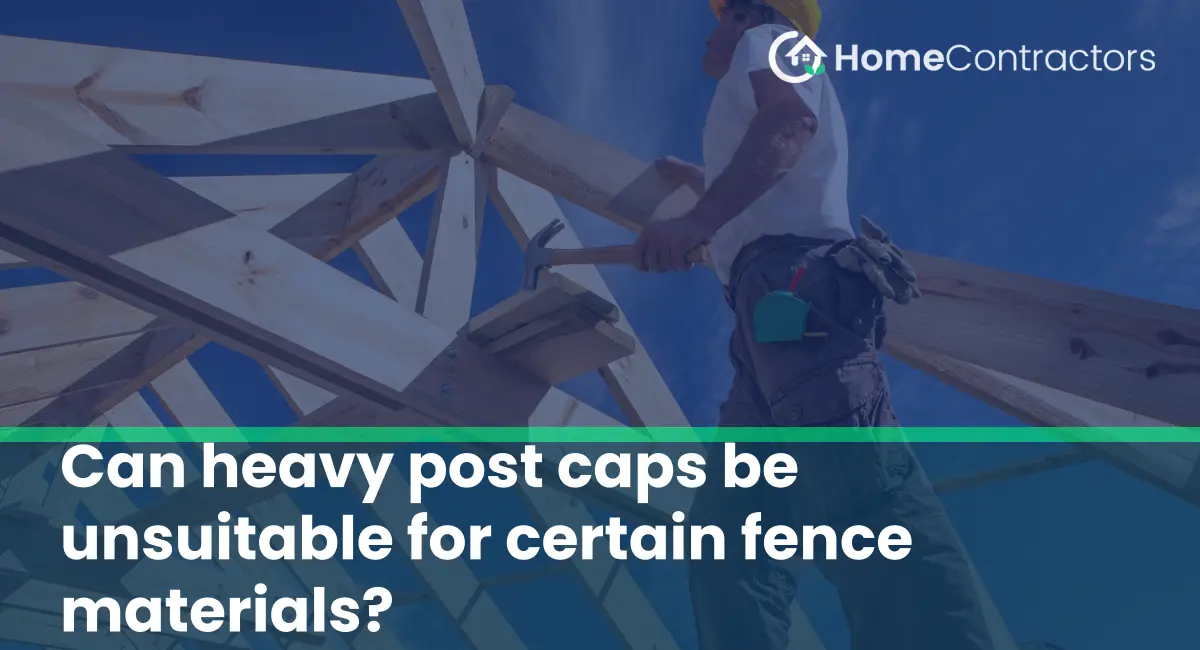Post caps serve both a functional and decorative purpose in fence construction. They are essential to protecting the top of fence posts from weather damage, while also adding a stylish finishing touch to the overall appearance of the fence. However, it is important to consider the weight and material of the post cap, as heavy post caps may be unsuitable for certain fence materials. In this article, we will explore the potential issues that heavy post caps can pose for specific fence materials and discuss alternative options for ensuring the longevity and stability of your fence.
Understanding the Importance of Post Caps
Before delving into the suitability of heavy post caps for different fence materials, it is crucial to understand the significance of post caps in general. Post caps provide a protective barrier against water infiltration, which can lead to rot, deterioration, and warping of the fence posts. By preventing moisture from seeping into the end grain of the wood, post caps help prolong the lifespan of the fence. Additionally, they contribute to the aesthetic appeal of the fence, offering an opportunity for personalization and customization.
Heavy Post Caps and Wood Fences
When it comes to wooden fences, the weight of the post cap plays a significant role in determining its suitability. Wood is a natural material that has strength limitations, and placing a heavy post cap on top of a wooden post can potentially compromise its structural integrity. As wood is subject to natural expansion and contraction due to changes in temperature and humidity, a heavy post cap may exacerbate these movements, leading to cracks or splits in the wood. These cracks provide a pathway for water to penetrate the post, resulting in accelerated rotting or decay.
Alternatives for Wood Fences
To ensure the longevity and stability of your wood fence, it is advisable to choose lightweight post cap options. Aluminum, vinyl, or plastic post caps are excellent alternatives that offer durability while minimizing the strain on the wooden posts. These materials are not only lighter but also resistant to weathering, which further enhances their suitability for use in wood fences. Furthermore, lightweight post caps are generally easier to install and replace, allowing for hassle-free maintenance.
Heavy Post Caps and Vinyl Fences
Vinyl fences have gained popularity due to their durability, low maintenance requirements, and aesthetic appeal. While vinyl is generally a robust material, it can still be susceptible to damage if subjected to excessive weight. Heavy post caps can place unnecessary stress on the vinyl posts, possibly resulting in cracking or warping over time. Moreover, the weight and pressure from heavy post caps can cause the fasteners to loosen, compromising the overall stability of the fence.
Alternatives for Vinyl Fences
To avoid potential damage to vinyl fences, it is recommended to opt for lightweight post caps specifically designed for use with vinyl posts. Many manufacturers offer lightweight vinyl post caps that not only provide adequate protection but also match the style and design of the fence. These lightweight options are usually made of vinyl or plastic materials, ensuring compatibility with the fence and minimizing the risk of structural issues.
While post caps are a vital component of any fence, it is essential to consider the weight of the cap when selecting suitable options for different fence materials. Heavy post caps can potentially cause structural problems, such as cracking, warping, or deterioration, in both wood and vinyl fences. To avoid these issues, it is advisable to choose lightweight alternatives made from materials such as aluminum, plastic, or vinyl. By making an informed decision when selecting post caps, you can ensure the longevity, stability, and aesthetic appeal of your fence for years to come.
